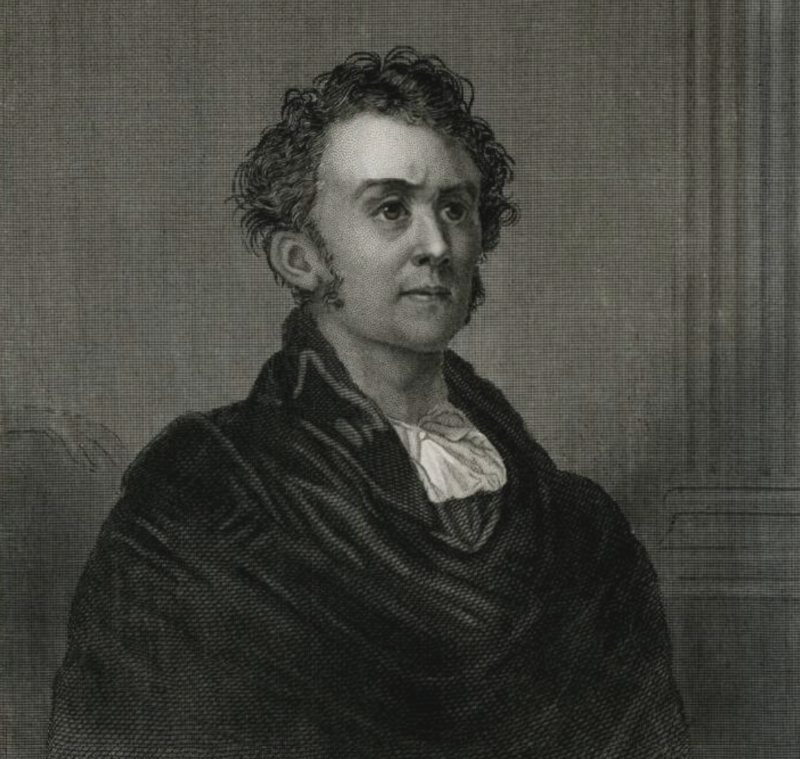Richard Lalor Sheil

Born a Kilkenny man whose father made a huge fortune in Spain, while he himself died in Italy in 1851. Regarded as a great orator and a colleague of Daniel O’Connell, the name Richard Lalor Sheil was a prominent one in Irish political life in the first half of the 19th century.
The Tipperary Star of June 1939 provides the following account of the colourful career to Richard Lalor Sheil:
The acquisition by the Irish Land Commission of the Power-Lalor estate at Templetuohy, Co. Tipperary, recalls events of great national interest during the first half of the last century, in which Richard Lalor Sheil, who lived and is buried on the estate, took part.
Although the figure of Shiel was overshadowed by that of O'Connell yet, as -an orator, scholar, parliamentarian, Sheil was his superior. He was born in County Kilkenny in 1791, the son of Edward Sheil who had acquired a large fortune in Cadiz, Spain. The young boy was sent to school to Kensington, London, where a party of French emigre Jesuits were in charge. Having returned to Trinity he became a member of the Historical Society, a nursery from which came many renowned orators. Smarting like most of his countrymen under the wrongs of the time he quickly identified himself with the Catholic cause, arid we find him while still in his teens, having the boldness to address a vast concourse of Catholics in Fishamble street. As an orator Shiel's reputation was then established, and on his future work for Ireland, high hopes were centred. The loss of his father's huge fortune through an unfortunate mercantile speculation in Dublin, turned the gifted student's thoughts to literature as a means of financing his law studies. From his pen came Adelaide, a tragedy deficient in plot, but which was " put over " by the witchery of the great Miss O'Neill. He produced the "Apostate" and " Bellamira," which yielded him considerable sums of money. His articles in the " New Monthly" were highly remunerative, but it is, perhaps, by his ‘Sketches of the Irish Bar" which he produced, in partnership with William H. Curran, son of the great orator, that he became very widely known.
The Catholic Association was founded in 1823 by O'Connell and Shiel. This event provided for Shiel a forum for the exposition of his oratorical gifts. He became a figure dreaded by the Government and marked as a dangerous foe by the ascendancy. It was decided to avail of the first opportunity to prosecute him. The chance came when Sheil selected the memoirs of Wolfe Tone as the subject for a spirited harangue. The Attorney-General (Lord Plunket), prepared the indictment but the prosecution was dropped when Canning became Prime Minister on the death of Lord Liverpool. Sheil, unlike O'Connell, considered his direct work for Ireland done when Emancipation was secured. Lord Anglesea secured him a seat in Parliament and a sinecure as Commissioner of Greenwich hospital. He was the first Catholic Commoner raised to the dignity of Privy Counsellor in England. His final gift from Lord Palmerston was the appointment as Minister to Tuscany. He died at Florence suddenly in 1851 and his remains were brought to Dublin in a man-of-war. The family declined for him a grave in Glasnevin beside O'Connell and he was brought to Templetuohy where a magnificent tomb surmounts his ashes. Though unquestionably a great ornament to Irish life and letters, and a great advocate of any cause he espoused, Sheil's' life was, to a great extent, lost to Ireland. Had he given his great powers to the movement for the repeal of the Union, Irish history might be differently written.
For more information search the pages of the Irish Newspaper Archive (www.irishnewsarchive.com )